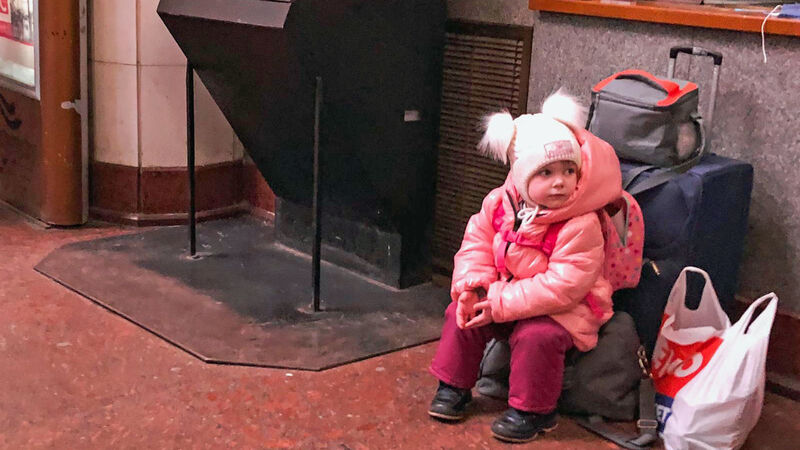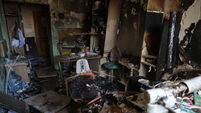Joyce Fegan: Despairing over Ukraine? There is something you can do

A little girl waiting at a train station in the Ukrainian city of Lviv, following Russia's invasion of Ukraine.
A young woman with blonde hair smiles spontaneously, with gentle ease, when she realises the passing phone's camera has landed on her.
She was in the midst of her work prior to the small intrusion, sitting on a kind of a bed about a foot off the ground. With the help of a small oxygen tank, a mask and several tubes, she is single-handedly tending to every breath of a newborn baby.

















